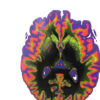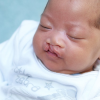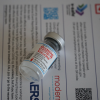Project News
 A team of CU researchers funded by AB Nexus has developed a new strategy for transforming medical images, such as CT or MRI scans, into incredibly detailed 3D models on the computer. The advance marks an important step toward printing lifelike representations of human anatomy that medical professionals can squish, poke and prod in the real world.
A team of CU researchers funded by AB Nexus has developed a new strategy for transforming medical images, such as CT or MRI scans, into incredibly detailed 3D models on the computer. The advance marks an important step toward printing lifelike representations of human anatomy that medical professionals can squish, poke and prod in the real world. University of Colorado researchers recently published a study that presents groundbreaking behavioral health models. Boosted by an AB Nexus grant, the study showed that fears are likely to linger because fear memories outlast competing safety memories gained in exposure therapy.
University of Colorado researchers recently published a study that presents groundbreaking behavioral health models. Boosted by an AB Nexus grant, the study showed that fears are likely to linger because fear memories outlast competing safety memories gained in exposure therapy. A team of AB Nexus researchers has created an intraoral scanning device to capture a digital impression of the infant’s mouth, from which a NAM is created and begins a half-year alignment process within the malleable palate, gum and lip tissues that can be done at home.
A team of AB Nexus researchers has created an intraoral scanning device to capture a digital impression of the infant’s mouth, from which a NAM is created and begins a half-year alignment process within the malleable palate, gum and lip tissues that can be done at home. Catalano is collaborating with Theodore Randolph, PhD, of the Department of Chemical and Biological Engineering at CU Boulder, to develop novel, controlled-release formulations of bacteriophages for the treatment of osteomyelitis, a deep-bone tissue injury. The project received an AB Nexus award last spring.
Catalano is collaborating with Theodore Randolph, PhD, of the Department of Chemical and Biological Engineering at CU Boulder, to develop novel, controlled-release formulations of bacteriophages for the treatment of osteomyelitis, a deep-bone tissue injury. The project received an AB Nexus award last spring. With funding from AB Nexus, researchers from CU Anschutz and CU Boulder are developing an artificial intelligence tool with a goal of diagnosing dementia at earlier stages, so patients and providers can plan more effective treatment options.
With funding from AB Nexus, researchers from CU Anschutz and CU Boulder are developing an artificial intelligence tool with a goal of diagnosing dementia at earlier stages, so patients and providers can plan more effective treatment options. University of Colorado Cancer Center researchers from the Anschutz and Boulder campuses are collaborating on a broad range of research that recently received AB Nexus support.
University of Colorado Cancer Center researchers from the Anschutz and Boulder campuses are collaborating on a broad range of research that recently received AB Nexus support. CU researchers used state-of-the-art modeling tools to simulate how COVID-19 might spread throughout the state in the months ahead under different scenarios—balancing how Coloradans could potentially relax their precautions while also keeping people out of hospitals. The work was funded by the AB Nexus.
CU researchers used state-of-the-art modeling tools to simulate how COVID-19 might spread throughout the state in the months ahead under different scenarios—balancing how Coloradans could potentially relax their precautions while also keeping people out of hospitals. The work was funded by the AB Nexus.

